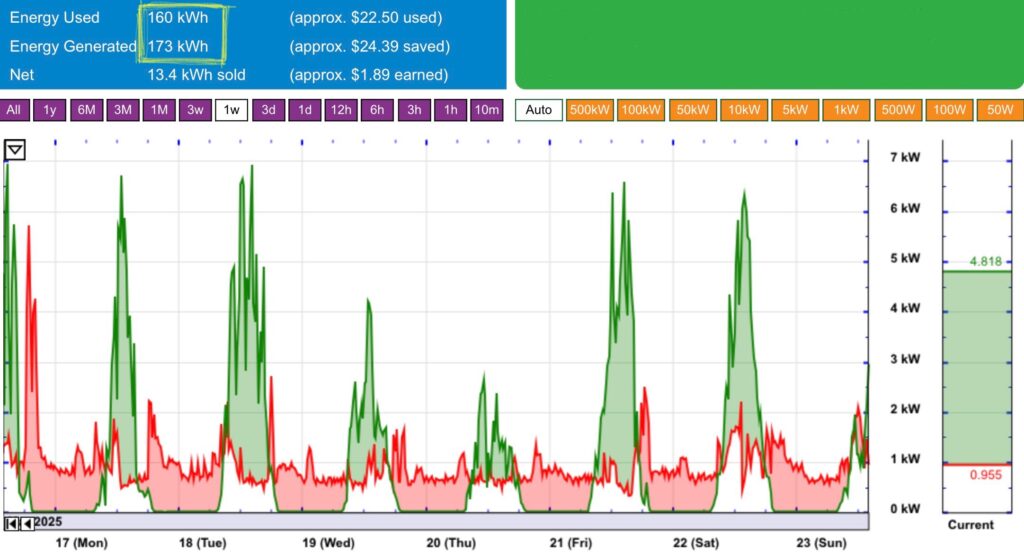One of my major goals for our home renovations has been achieving Net Zero, meaning our house produces as much energy as it consumes. As one might expect, producing as much energy as we consume yields energy bills of less than $0. Today I consulted my energy meter and extracted the following data points for calendar year 2017:
- Energy Produced: 9,288 kWh
- Energy Consumed: 12,396 kWh
- Energy Consumed by Auto: 3,216 kWh
- Energy Consumed by Building: 9,180 kWh
For the purposes of measuring building consumption, I subtracted the auto consumption (measured by our chargepoint home charger) from total consumption. Since our building produced 108 kWh more than it consumed, I can claim the Net Zero goal as accomplished.
Our home and EV together consumed 1,500 kWh less in 2017 than 2016. Looking forward, I anticipate a similar reduction in 2018 because we were using space heaters for part of the house in Jan-Apr of 2017. The heat pump for that area is now installed. Also, the concrete basement and downstairs walls aren’t insulated yet. I have the insulation (XPS & poly-iso) standing by and it will be installed before the next heating season.
I don’t expect an substantial efficiency improvements after 2018. All our energy systems are super efficient, our insulation levels are super, and our energy surpluses (say hello to Energy Plus) will be consumed by our current and future EVs. Any further efficiency improvements would have no economic justification.
Reference points
- Average home energy consumption: 23,000 kWh
- Average auto energy consumption: 15,000 kWh
- A super-insulated (aka: ultra efficient) home typically needs 1/5 the energy for HVAC.
- On average, EVs consume 1/3 the energy of an ICE vehicle.




